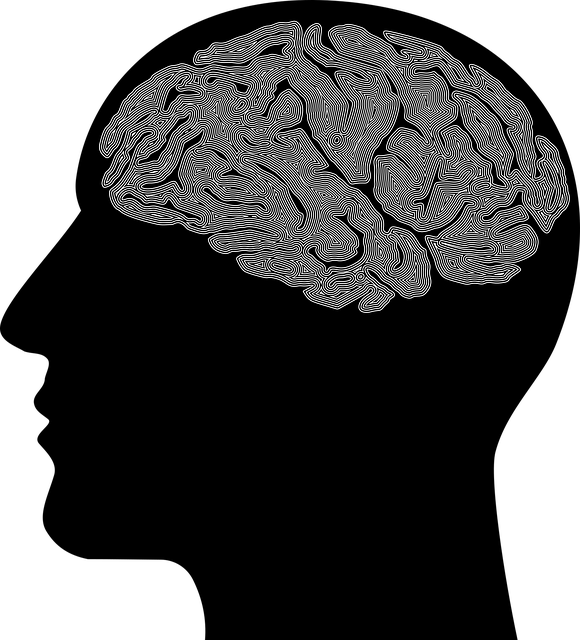Centennial Eating Disorders Therapy provides specialized support for individuals struggling with both trauma and eating disorders, offering a comprehensive, evidence-based approach. By creating safe spaces and using strategies like Cognitive Behavioral Therapy (CBT), Eye Movement Desensitization and Reprocessing (EMDR), and Mindfulness-Based Therapies, they empower clients to process traumatic memories, improve their relationship with food and bodies, and lead fulfilling lives. Their holistic care includes individual therapy, group support, community outreach programs, and advocacy in mental health policy, tailored to the unique needs of each client.
Trauma, an often-overlooked public health concern, significantly impacts mental well-being. This article explores comprehensive trauma support services, with a focus on the role of Centennial Eating Disorders Therapy in offering specialized care. We delve into understanding trauma’s effects, its identification in therapy settings, and evidence-based treatment methods. Furthermore, it highlights the creation of supportive therapeutic environments, providing insights into effective recovery strategies. By examining these aspects, we aim to emphasize the importance of accessible trauma support, particularly through innovative practices like Centennial Eating Disorders Therapy.
- Understanding Trauma and its Impact on Mental Health
- The Role of Centennial Eating Disorders Therapy in Trauma Support
- Identifying and Assessing Trauma in Individuals Seeking Therapy
- Evidence-Based Approaches for Trauma Treatment
- Creating a Therapeutic Environment that Supports Recovery from Trauma
Understanding Trauma and its Impact on Mental Health

Trauma, a deeply distressing event or series of events, can have profound and lasting effects on an individual’s mental health. It alters brain chemistry and can lead to complex psychological responses, including anxiety, depression, and even eating disorders, as seen in many clients at Centennial Eating Disorders Therapy. The impact of trauma isn’t just immediate; it often manifests as long-term challenges, affecting a person’s ability to function in daily life and form healthy relationships. Understanding these effects is crucial for developing effective support systems.
Empathy Building Strategies are vital tools in trauma support, fostering a safe space for individuals to process their experiences. By promoting non-judgmental listening and reflection, therapists can help clients feel understood, reducing feelings of isolation. Additionally, Anxiety Relief and Stress Reduction Methods can empower survivors to manage their responses to traumatic memories or triggers, enabling them to lead fulfilling lives.
The Role of Centennial Eating Disorders Therapy in Trauma Support

Centennial Eating Disorders Therapy plays a pivotal role in trauma support services by offering specialized care tailored to individuals who have experienced traumatic events. This therapy recognizes that eating disorders and trauma are often interconnected, with many clients presenting both conditions simultaneously. By addressing the complex relationship between trauma and eating disorders, Centennial provides a holistic approach to healing. Skilled therapists employ evidence-based practices to help clients process and manage their traumatic memories while also focusing on improving relationships with food and bodies.
The therapeutic environment fostered by Centennial Eating Disorders Therapy encourages vulnerability and safety, allowing individuals to explore their emotional responses to trauma without judgment. Through individual therapy sessions, group support groups, and community outreach programs like the Mood Management initiative, clients gain valuable coping mechanisms and build resilience. Additionally, advocacy efforts in Mental Health Policy Analysis and Advocacy ensure that services meet the unique needs of those affected by trauma and eating disorders at a systemic level, contributing to a more supportive community environment for recovery.
Identifying and Assessing Trauma in Individuals Seeking Therapy

Identifying and assessing trauma is a critical step in providing effective support for individuals seeking therapy, especially those struggling with eating disorders at Centennial Eating Disorders Therapy. Traumatic experiences can significantly impact mental wellness, often manifesting as symptoms of anxiety, depression, or even eating disorder behaviors. The process begins with a thorough intake evaluation where therapists create a safe and non-judgmental space for clients to share their stories. This may involve discussing past and present challenges, relationships, and any instances of abuse, neglect, or significant stress.
During assessment, therapists use validated tools and clinical expertise to recognize trauma’s effects on the individual. They pay close attention to emotional responses, physical sensations, and patterns of thinking and behaving. By understanding the client’s unique traumatic history, therapists can tailor treatment plans that address specific needs, incorporating strategies from the Mental Wellness Podcast Series Production to enhance emotional intelligence and coping mechanisms. This personalized approach is crucial in facilitating healing and promoting long-term recovery for those navigating trauma and eating disorders.
Evidence-Based Approaches for Trauma Treatment

In the realm of trauma support services, evidence-based approaches have proven to be game-changers in effective treatment. One such example is Cognitive Behavioral Therapy (CBT), which helps individuals challenge and change negative thought patterns and behaviors associated with traumatic events. This structured therapy facilitates resilience building by teaching coping strategies and problem-solving skills, enabling clients to manage their symptoms and regain control over their lives.
Additionally, services like Centennial Eating Disorders Therapy integrate innovative techniques tailored to address specific trauma-related challenges. By incorporating elements of Eye Movement Desensitization and Reprocessing (EMDR) and Mindfulness-Based Therapies, these practices offer holistic solutions for anxiety relief and emotional healing. Furthermore, cultural sensitivity in mental healthcare practice is a key aspect that ensures traumatic experiences are understood within the context of an individual’s background, fostering inclusive and effective trauma support.
Creating a Therapeutic Environment that Supports Recovery from Trauma

Creating a safe and supportive environment is pivotal for individuals navigating trauma recovery. At Centennial Eating Disorders Therapy, we prioritize fostering therapeutic spaces that encourage healing and empowerment. This involves careful consideration of various factors to ensure clients feel seen, heard, and respected throughout their journey. A structured yet flexible approach is key; establishing clear boundaries while allowing for adaptability enables individuals to process traumatic experiences at their own pace.
The environment plays a significant role in promoting mental wellness. Through the integration of evidence-based practices and personalized guidance, our services offer a comprehensive framework for recovery. This includes incorporating Mood Management techniques and encouraging the use of Mental Wellness Journals as powerful tools for self-reflection and processing emotions. By creating an atmosphere that nurtures growth and resilience, we empower clients to embark on their path to healing and restoration.
Centennial Eating Disorders Therapy plays a pivotal role in trauma support services, offering specialized care that addresses the complex interplay between trauma and mental health. By understanding the impact of trauma and implementing evidence-based approaches, such as creating supportive therapeutic environments, this therapy empowers individuals to heal and recover. The comprehensive services provided ensure that those seeking help receive the necessary tools and resources to navigate their traumatic experiences effectively.









